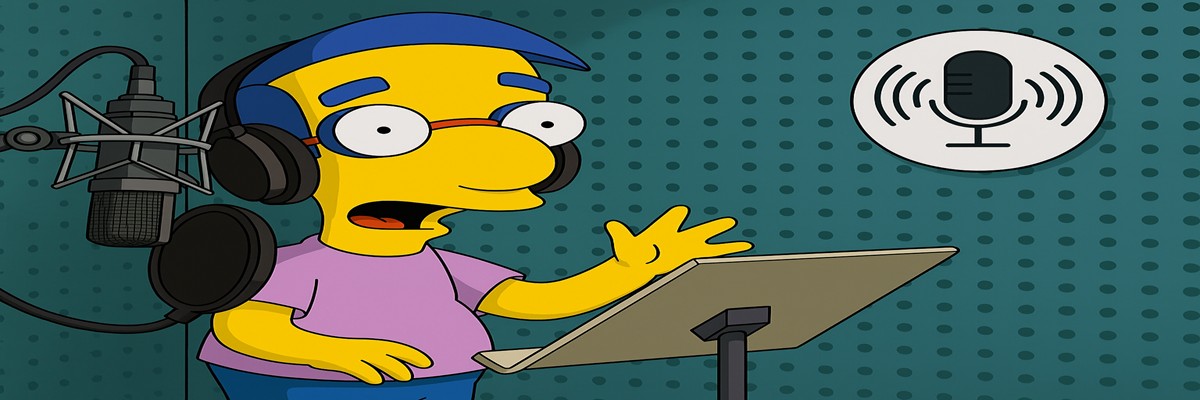After decades of shaping one of television’s most recognizable voices, Pamela Hayden has officially stepped away from her role as Milhouse Van Houten on The Simpsons. In her place, voice actor Kelly MacLeod has been announced as the new voice of Bart Simpson’s best friend, marking a significant casting transition for the long-running animated series.
While the change may be subtle to casual viewers, the update is a major moment in the world of voice acting—especially for fans and industry professionals who understand just how vital a consistent, emotionally resonant voice can be to a beloved character.
Pamela Hayden’s Legacy as Milhouse
Pamela Hayden voiced Milhouse for more than 30 years, starting with The Simpsons’ early days on The Tracey Ullman Show and continuing through over 700 episodes of the main series. Her version of Milhouse—nervous, awkward, and perpetually hopeful—became a cornerstone of the show’s emotional humor. Whether in moments of comic misfortune or occasional self-assertion, Hayden’s voice helped elevate Milhouse from a side character to a fan-favorite.
In addition to Milhouse, Hayden also voiced several other recurring characters over the years, including Rod Flanders and Jimbo Jones. Her versatility made her one of the most valuable members of the Simpsons voice ensemble, and her departure marks the end of an era for the show’s vocal continuity.
Though the reasons for Hayden’s departure haven’t been made public, the show’s producers have acknowledged her years of service with respect and gratitude.
Kelly MacLeod Takes Over the Role
Stepping into the iconic role is Kelly MacLeod, a voice actor known within animation circles but now gaining broader attention thanks to her casting as Milhouse. MacLeod made her debut in the April 21 episode titled “Cremains of the Day,” where longtime fans noticed a subtle but distinct difference in Milhouse’s voice—a change later confirmed by 20th Television Animation.
MacLeod’s performance maintains the essential vocal qualities of Milhouse: high-pitched, vulnerable, and emotionally reactive. Yet her tone adds a slightly cleaner, younger finish—one that fits the character’s age while still honoring Hayden’s original blueprint. It’s a careful balancing act, and early reactions suggest that MacLeod has struck it well.
MacLeod herself has not yet released a public statement about the role, but the studio’s casting choice signals trust in her ability to carry one of Springfield’s most iconic kids into a new chapter.
How the Show Has Handled Casting Transitions
This isn’t the first major voice casting change for The Simpsons, which has gradually shifted several roles in recent years. Notably, the show has moved toward more inclusive casting, bringing in new actors for characters like Carl Carlson and Dr. Hibbert, both of whom were originally voiced by white actors. These changes were met with mixed reactions initially but ultimately signaled a broader industry shift toward responsible and representative casting practices.
Unlike those shifts, the Milhouse change is primarily a succession—passing the torch from a departing performer to a new talent rather than recasting based on character background. Nonetheless, the same level of attention has been paid to keeping the character’s voice consistent, ensuring that longtime fans feel the continuity.
The Importance of Voice Continuity in Animation
In animation, a character’s voice is just as recognizable as their appearance—if not more so. That’s why recasting even a single role in a show as established as The Simpsons can feel like a seismic shift to its audience.
Milhouse’s voice is not just about tone and pitch; it’s about timing, delivery, and emotional rhythm. From lines like “I’m not a nerd! Nerds are smart!” to his infamous “Everything’s coming up Milhouse,” Pamela Hayden created a distinct cadence that was inseparable from the character’s personality.
Replacing that voice isn’t about mimicry—it’s about understanding what makes the performance work and translating it with a fresh but familiar sensibility. MacLeod’s early delivery suggests she’s bringing that level of understanding to the role.
Fan Reactions and Looking Forward
As expected with any change to a beloved character, reactions from fans have been mixed. Some noticed the change immediately, while others appreciated how smoothly the new voice blends with the rest of the cast. Social media threads have included praise for the show’s decision to handle the transition quietly and respectfully, allowing the new performance to speak for itself.
Voice actors and professionals within the animation industry have also chimed in with support, noting how challenging it is to step into a legacy role and commending MacLeod for her performance.
As The Simpsons continues into its record-breaking 36th season, Kelly MacLeod’s Milhouse will be a performance to watch—not just for how it honors the past, but for how it adds to one of the most enduring animated characters in TV history.

